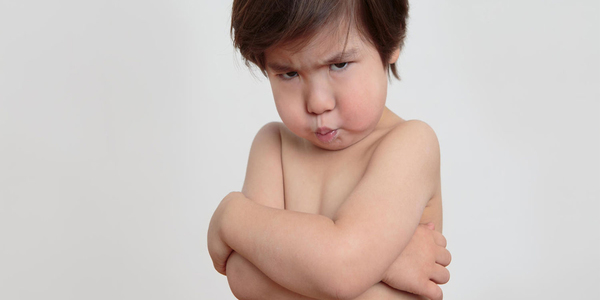Don’t worry. Neither does he intend to become a rock star nor is he going to get hurt. It is just a form of getting attention to their demands.
[the_ad id=”13371″]
Rarely, some children may do to comfort/soothe themselves or for pain relief in response to acute illness. Head banging is an integral part of normal development. It is as normal as a child does thumb sucking or body rocking or putting everything in the mouth. Fatigue, hunger, teething, attention seeking or discomfort from a wet diaper can increase the tendency to head bang. It is seen normally in latter half of first year of life and generally goes on its own by four years of age. Boys are three or four times more likely to be head-bangers than girls.
When should one be worried?
- Persists beyond 4 years age
- Other abnormal features suggestive of psychiatric disturbance
- History of childhood abuse or neglect
- Past evidence of trauma to head due to head banging
At what age does it begin and end?
Typically, head banging appears in the latter half of the first year of life and generally ends spontaneously by four years of age. Boys are three or four times more likely to be head-bangers than girls.
Can it damage the brain?
No. Although this habit appears alarming, there rarely is significant head damage/injury in normal children. It may damage the brain only if there is underlying disorder e.g. autism.
How is head banging treated?
Most children will outgrow the habit on their own, but you can try the following at home:
- As first step, try to figure out when your child engages in the activity
- Make sure your child gets plenty of positive attention from you when he is not banging his head
- If he is banging his head as part of tantrum, do not give him whatever he wants
- Even if you can’t completely disregard the behavior, don’t scold or punish. By doing so, you are inadvertently giving them attention which may in turn reinforce the behavior
- When you notice him head banging, you might be able to stop him by distracting him or engaging him in a different activity or conversation
- If your child is banging his head as a way of calming down or at the end of the day, try setting up a relaxing routine. A warm bath, rocking on your lap and a quiet story or song may help
Can it be a symptom of autism?
It may be part of autism. If you doubt autism, look for other symptoms like solitary play, lack of eye contact, repetitive behavior. In such cases, consult your pediatrician.
Source:

